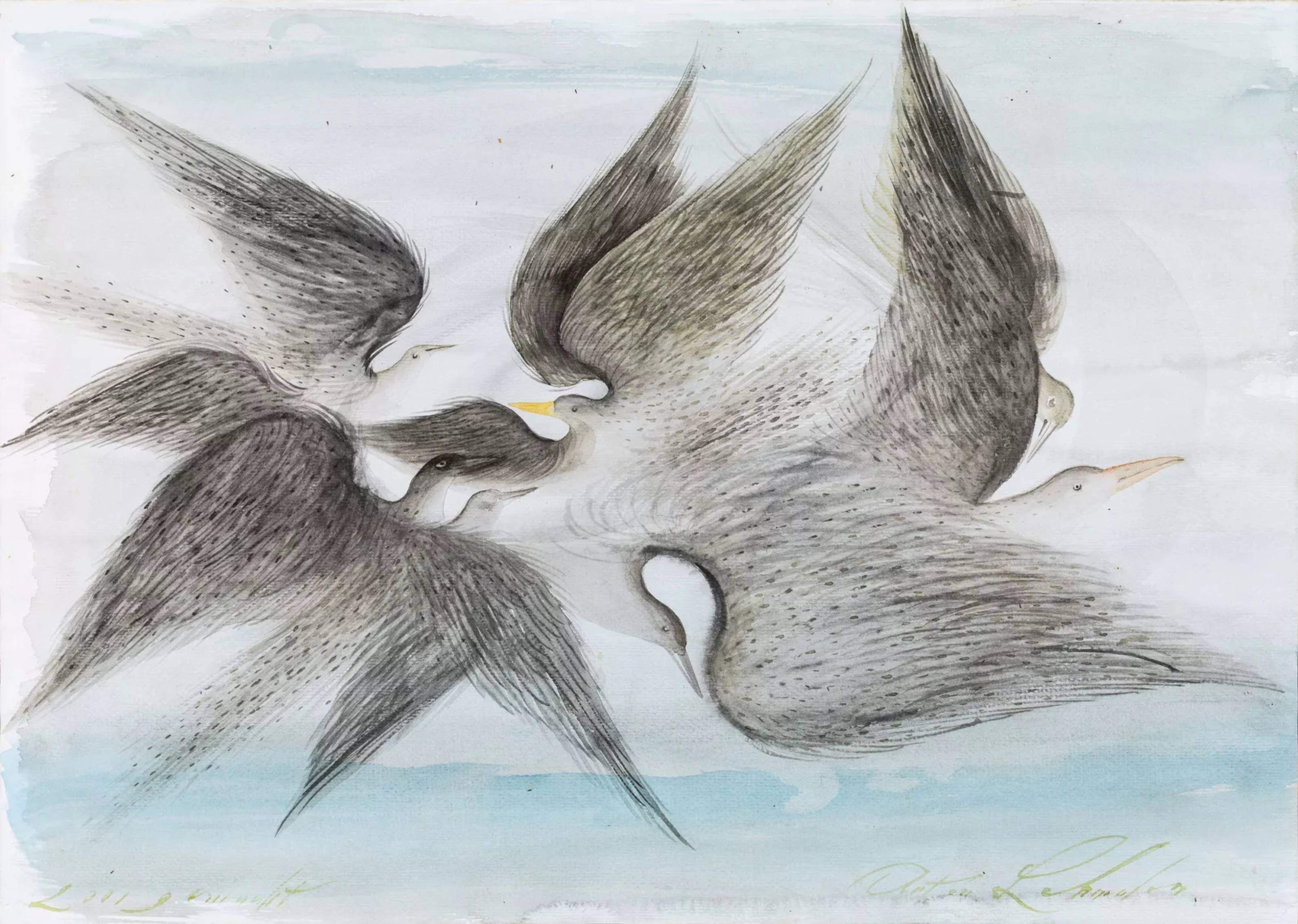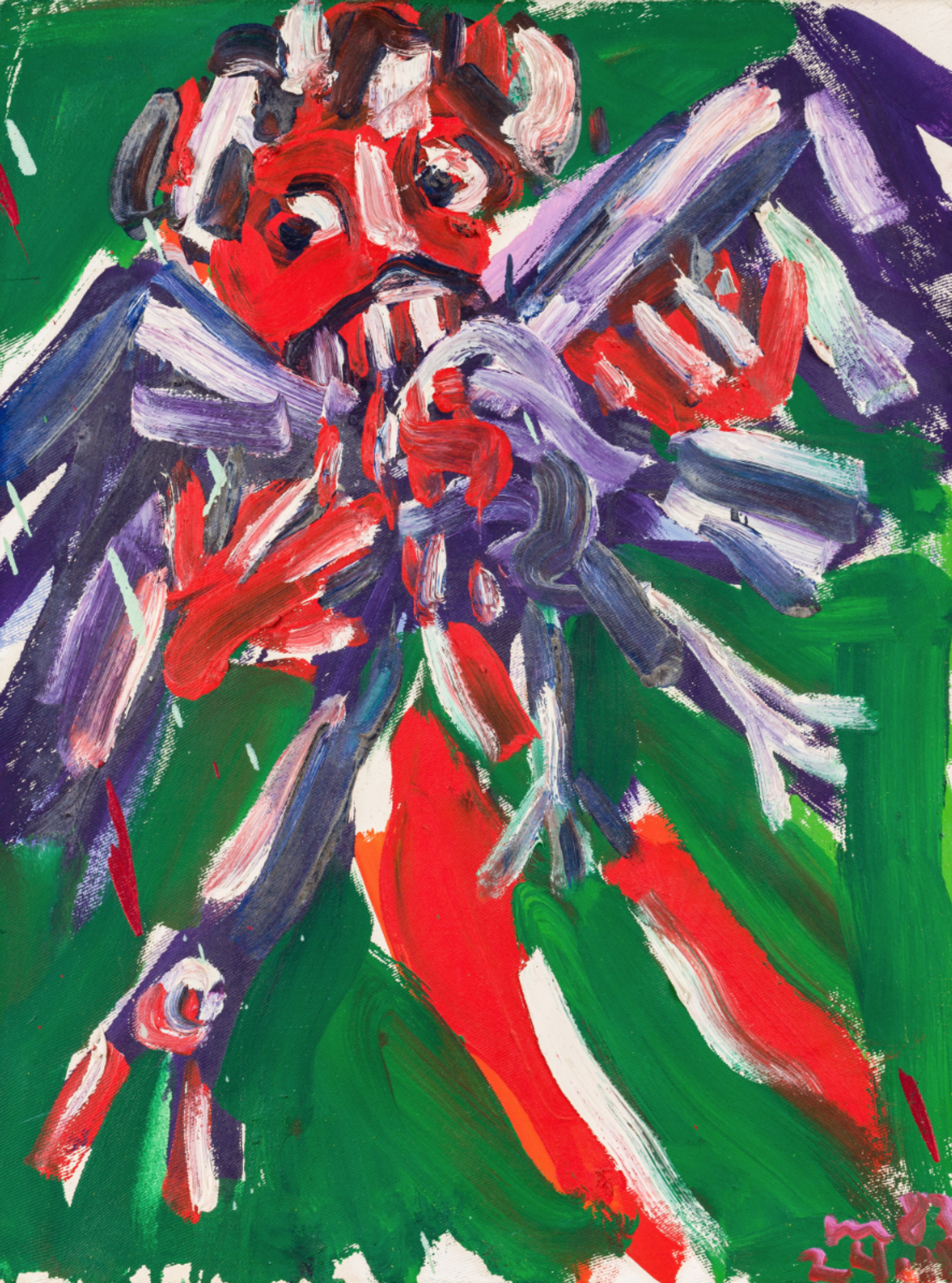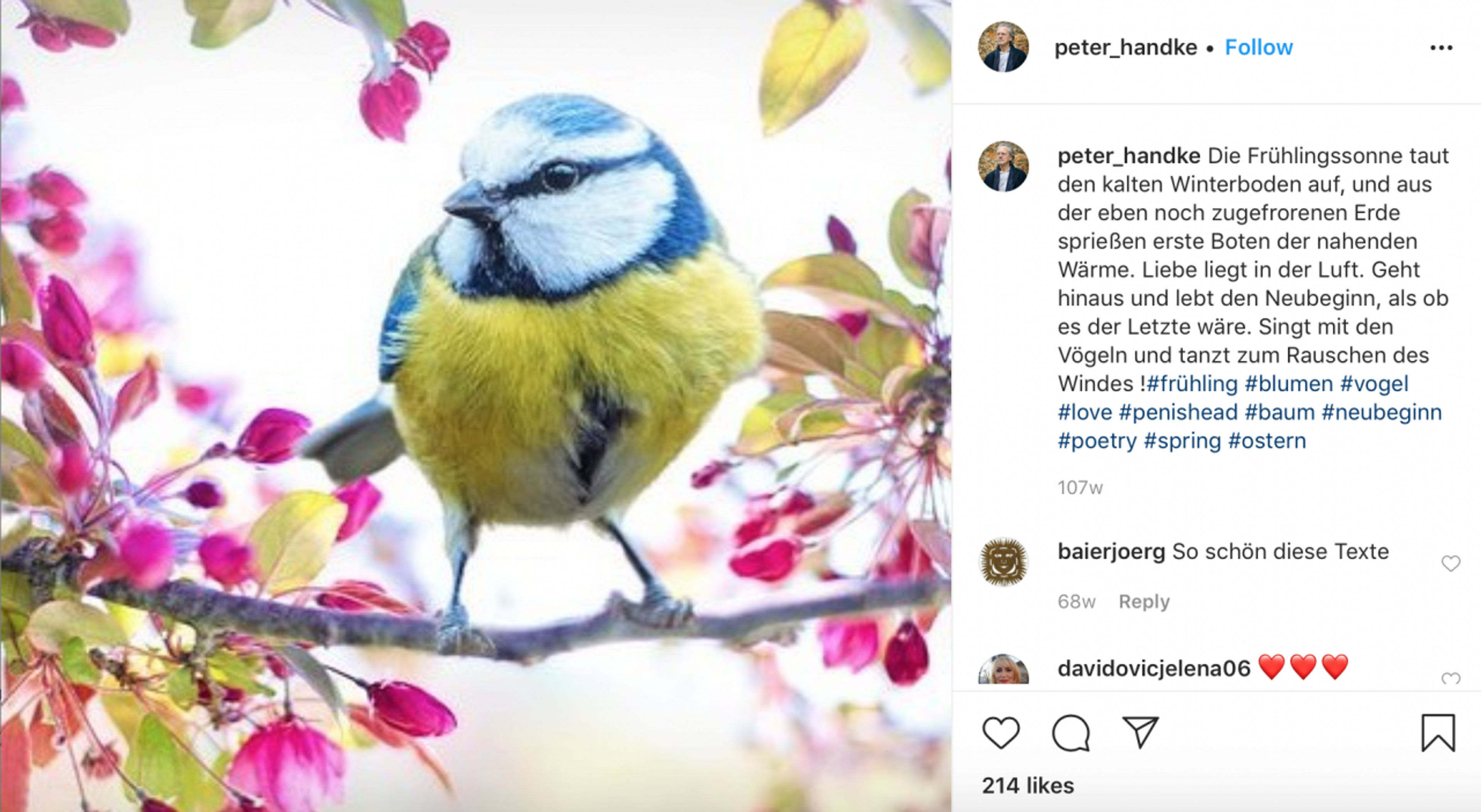What is it about Austrian writers and birds? Is there something in the deep, dark forest, or morbid imagination, that seeks communion with these creatures (communion is the right word, for the authors are also often Catholic)? Even Audubon was confirmed, but that’s another place altogether. My courtyard is probably like so many others, filled with the squawks, chirps, and the occasional song. I think I’m losing my mind when I hear them at 5am, the night having bled into the day, without pause or anything resembling transformation. When I’m lying in bed I imagine where everything is coming from, though when I actually drag myself to the window to check, my orientation turns out to be pretty far from accurate.
Ok, back to the Austrians. I don’t know how or why this connection of birds and writers came about. Birds are hardly a rare topic, and nothing exclusive to Austria, or Austrians. Nevertheless, I couldn’t sleep and remembered Robert Musil’s “The Blackbird” (Die Amsel [1928]), a short story that now hit a bit too close to home – my home, anyway. No military service in my past, but I did find it odd, to say the least, that Lockheed Corporation’s covert SR71 plane was nicknamed “blackbird.” Musil’s tale moves from reminiscence about a bird visitor to warplanes dropping explosives into the trenches during the First World War. So, naturally, when all connections seem to be pointing somewhere (nowhere?), I asked myself if the engineers at Lockheed were reading Musil. There was probably a German minor among the project’s original members, who was all jazzed as a student to be able to finally read Nietzsche in the original.
An SR-71 Blackbird
What really cuts is Musil’s descriptions of Berliner apartments, and the restless nights, all of which create the backdrop for the story of the eponymous bird. This one passage could have been written while looking out of my bedroom window:
Among the most extraordinary places in the world … are those Berlin courtyards where two, three or four buildings flash their rear end at each other … The kitchens and bedrooms look outwards and downwards on all this; they lie close together like love and digestion in the human anatomy. Floor upon floor, the conjugal beds are stacked up one on top of the other; since all the bedrooms occupy the same space in each building – window wall, bathroom wall, and closet wall prescribe the placement of each bed almost down to the half yard.
Far be it from me to offer anything like insight on this. I’m just following another breadcrumb trail left by some bird-obsessed Austrians. Ingeborg Bachmann’s short poem “My Bird” (Mein Vogel, 1961) surfaces. It begins with the lines: “Whatever happens: the devastated world sinks back into twilight.” Here’s a clip of Bachmann reading her verse. Weird that it’s not the world getting up at daybreak with the chirping creatures. In Bachmann’s short piece, the bird (whatever that is) is what Bachmann calls her “nightly accomplice”. Strangely enough, in both Musil’s and Bachmann’s accounts, the bird is a creature that comes in the night. Twilight and daybreak are becoming blurred, and I think the birds are struggling with it as well. I didn’t know that Bachmann wrote her dissertation on the reception of Heidegger’s work, when “the fox” as Hannah Arendt called him, was still very much alive. Again, what’s with these Catholics? It’s all birds and bombs.
Otto Mühl, Vogelfresser, 1983, oil on canvas, 60 x 45 cm
There’s the great expression in English, “for the birds”, though I can’t say that I use it with any regularity. It sounds somewhat dismissive to me now. I didn’t know the German equivalent before I started down this path. I came across it while reading Peter Handke’s Kaspar (1967), another Austrian with his fair share of controversy. There’s a line that goes in the English translation, “every sentence is for the birds.” Doesn’t sound terribly convincing, but that’s ok. The German rhymes and goes Jeder Satz für die Katz. So, in German, for something to be insignificant – for the birds – is to be for the cat? Not sure I follow, and it kind of deflated my bird balloon, but maybe the flying creatures were just a reminder of the sleeplessness; here I can relate! In other words, the bird, in whatever form, is a pretty obvious figure for procrastination, if other things, too. The cat is more nocturnal, though. I’m confused. The best I could come up with is something like, “Well, there’s nothing else in my mind today, what about those little rascals outside my window that refuse to keep quiet? I’ll write about them.”
Ok, that’s the dark-humored Austrians getting the better of me, maybe. I like it, though. Better to think it’s a bird on your windowsill than your mind turning over again without much to show for it. It really is for the birds.
Post by @peter_handke





